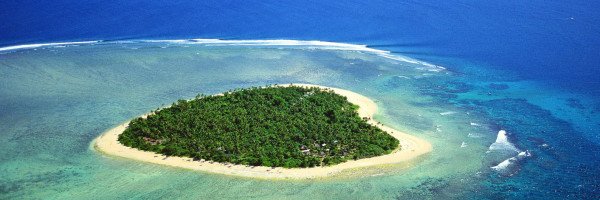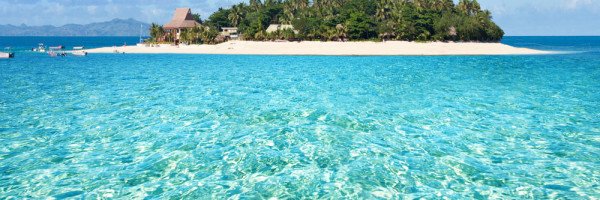The Cultural Roots of Kava in Fiji
Kava, a traditional beverage made from the root of the kava plant (Piper methysticum), holds profound cultural significance in Fiji. This drink has been consumed for centuries, serving not only as a social lubricant but also as a means of fostering community and connection among Fijians. In traditional ceremonies, kava is prepared and presented with great reverence, often accompanied by specific rituals and chants that honor the ancestors. The preparation involves grinding the kava root, mixing it with water, and straining it to produce a muddy, earthy drink that is enjoyed by many. The drinking of kava is central to Fiji’s communal gatherings, known as “sevusevu,” where offerings are made to the chief or host before the drink is shared. This act of sharing kava reinforces social bonds and signifies respect among participants. In addition to its ceremonial aspects, kava is believed to have calming properties, promoting relaxation and enhancing social interactions. For those wishing to understand the depth of Fiji’s cultural heritage, participating in a kava ceremony is an invaluable experience. For more insights into Fiji’s rich traditions, visit Fiji Islands.The Tasting Experience of Kava
Tasting kava is not merely about the flavor; it is an experience that engages all the senses. When you first sip kava, you may notice its earthy aroma and slightly gritty texture, which can be off-putting to some. The taste of kava is often described as mildly bitter, with a hint of peppery notes. While the initial flavor may not be what one expects from a beverage, the effects of kava quickly take center stage. As kava is consumed, many people report a feeling of warmth and relaxation that spreads throughout the body. This sensation is often accompanied by a sense of calm and well-being, making it a popular choice for unwinding after a long day. In Fiji, kava is typically served in a communal bowl, and it is customary to drink it quickly in one go. This communal aspect enhances the tasting experience, as it fosters connection and shared enjoyment among participants. For those looking to explore kava tasting in a broader context, consider joining a guided tour that highlights Fiji culinary adventures. These experiences often include kava tasting alongside other traditional Fijian dishes, offering a holistic view of the local culture.Kava and Its Role in Social Gatherings
In Fijian culture, kava plays a pivotal role in social gatherings, from casual meet-ups to significant life events such as weddings and funerals. The presence of kava signifies hospitality and respect, as it is often shared among family, friends, and visitors alike. In these settings, the act of drinking kava becomes a ritual that fosters camaraderie and strengthens relationships. During these gatherings, it is not uncommon for stories to be shared, songs to be sung, and laughter to fill the air. The communal experience of drinking kava encourages open communication and a sense of belonging. In many ways, kava acts as a social glue that binds people together, transcending barriers of age and status. For visitors to Fiji, engaging in these social gatherings provides a unique opportunity to immerse oneself in the local culture. Participating in a kava ceremony allows travelers to connect with Fijians on a deeper level, experiencing the warmth and hospitality that the islands are known for. If you are planning a trip to Fiji, be sure to seek out opportunities to partake in these meaningful gatherings.Kava’s Global Popularity and Its Impact on Fijian Culture
In recent years, kava has gained popularity outside of Fiji, with many countries around the world embracing this unique beverage. This surge in interest has led to an increased appreciation for kava’s cultural heritage and its significance in Fijian society. However, this globalization of kava also raises questions about cultural appropriation and the preservation of traditional practices. In Fiji, the growing international interest in kava has prompted many communities to promote their cultural heritage while ensuring that traditional practices are respected. This includes educating visitors about the proper ways to engage in kava ceremonies and encouraging responsible consumption. The Fijian government has also recognized the potential economic benefits of kava tourism, promoting initiatives that support local farmers and producers. As kava continues to make its mark on the global stage, it is essential for travelers to approach this experience with respect and an understanding of its cultural roots. For those in New Zealand, where kava has also gained traction, it is important to engage with the beverage in a way that honors its Fijian origins while enjoying its unique flavors and effects.The Preparation of Kava: A Ritual in Itself
Preparing kava is an art form that requires attention to detail and respect for tradition. The process begins with selecting high-quality kava roots, which are then cleaned and peeled. After this, the roots are either pounded or grated into a fine powder, which is the essential ingredient for the beverage. The powdered kava is mixed with cold water in a large bowl, and the mixture is kneaded and squeezed to extract the kavalactones, the active compounds that provide kava’s relaxing effects. This preparation process is often a communal activity, with family members or friends gathering to participate. The act of making kava is imbued with meaning, as it is not just about the final product but also about the relationships and connections forged during the preparation. Once the kava is ready, it is strained to remove any solid particles, resulting in a smooth, muddy liquid that is served in traditional coconut bowls. For those interested in exploring the art of kava preparation, participating in a workshop or cultural tour in Fiji can provide invaluable insights. By learning about the preparation methods, you can gain a deeper appreciation for this beloved beverage and its significance in Fijian culture. Explore Fiji culinary adventures that include kava preparation experiences.Kava and Well-being: The Health Benefits
Kava has been celebrated for its health benefits, particularly its calming and anxiolytic properties. Many people consume kava to alleviate stress, anxiety, and insomnia, making it a popular alternative to conventional medications. The kavalactones in kava interact with neurotransmitter systems in the brain, promoting relaxation without impairing cognitive function or motor skills. In Fiji, kava is often consumed as part of a holistic approach to well-being, where it is complemented by traditional practices such as meditation, music, and dance. This combination fosters a sense of community and belonging, further enhancing the overall health benefits associated with kava consumption. As interest in natural remedies grows in New Zealand and beyond, many are turning to kava as a means of promoting relaxation and mental clarity. However, it is essential to consume kava responsibly and in moderation. Engaging with knowledgeable sources or practitioners can help ensure that you are making informed choices about kava consumption. If you’re curious about the health benefits of kava and its role in Fijian culture, look for resources that explore this fascinating beverage in depth. Consider joining a kava tasting workshop or cultural experience, where you can learn about its positive impact on well-being while enjoying the rich traditions of Fiji.Planning Your Kava Adventure in Fiji
For those eager to experience the sweetness of kava firsthand, planning a kava adventure in Fiji is an exciting prospect. The best way to immerse yourself in the kava culture is to visit local villages, where you can participate in genuine kava ceremonies and learn about the various types of kava grown in the region. Many tour operators offer packages that include visits to kava farms, allowing you to see the cultivation process and taste different varieties. When planning your trip, consider timing your visit to coincide with local festivals or cultural events, where kava plays a central role. These gatherings offer a vibrant atmosphere and a chance to witness the communal spirit of kava drinking. Additionally, you may want to explore the culinary scene in Fiji, as many restaurants and resorts offer kava-infused dishes that showcase this unique ingredient. For travelers from New Zealand, Fiji is a short flight away, making it an accessible destination for those looking to explore kava and its cultural significance. Be sure to engage with locals, ask questions, and soak in the rich history surrounding this beloved beverage. Discover more about planning your kava adventure by visiting Fiji Islands, where you can find resources and tips for your culinary journey.FAQs
What is kava and why is it significant in Fijian culture?
Kava is a traditional beverage made from the roots of the kava plant (Piper methysticum) and holds great cultural significance in Fiji. It is often consumed during ceremonial occasions, community gatherings, and social events, symbolizing hospitality and unity. The preparation and sharing of kava reflect the Fijian values of respect and connection, making it an integral part of Fiji’s cultural heritage.
How is kava prepared and served in Fiji?
The preparation of kava involves grinding or pounding the dried roots into a fine powder, which is then mixed with water to create a muddy, earthy drink. It is typically served in a communal bowl called a ‘tanoa,’ and participants take turns drinking from a coconut shell. This ritual fosters a sense of community and shared experience, making it a highlight of Fiji culinary adventures.
What does kava taste like?
Kava has a unique flavor that is often described as earthy, slightly bitter, and somewhat peppery. Its taste can vary depending on the preparation method and the specific variety of kava used. While some may find the flavor unfamiliar at first, many come to appreciate its distinctiveness, especially when enjoyed in the context of a traditional Fijian gathering.
Are there any health benefits associated with kava consumption?
Kava is known for its calming and relaxing effects, often used to reduce anxiety and promote a sense of well-being. Some studies suggest that kava may have potential benefits for stress relief and improved sleep quality. However, it is essential to consume kava in moderation and be aware of any potential side effects, as excessive consumption can lead to health issues.
Can tourists participate in kava ceremonies in Fiji?
Yes, tourists are often welcomed to participate in kava ceremonies as part of their Fiji culinary adventures. Many resorts and cultural tours offer authentic experiences where visitors can learn about kava’s significance, witness its preparation, and enjoy the drink in a traditional setting. Engaging in a kava ceremony is a fantastic way to connect with Fijian culture and make lasting memories.
Is kava safe to drink for everyone?
While kava is generally safe for most people when consumed in moderation, it may not be suitable for everyone. Pregnant or nursing women, individuals with liver conditions, or those taking certain medications should consult with a healthcare professional before consuming kava. It’s important to be aware of one’s own health status and make informed decisions regarding kava consumption.
Where can I experience kava tasting in Fiji?
Kava tasting can be experienced at various locations throughout Fiji, including local villages, cultural centers, and some resorts that focus on authentic Fijian experiences. Many culinary adventures in Fiji include kava tasting as part of their itinerary, allowing visitors to immerse themselves in the local culture while enjoying this traditional beverage.
References
- Fiji Islands Official Travel Site – A comprehensive guide to the culture, traditions, and experiences in Fiji, including insights into kava and its significance in Fijian society.
- Cultural Context of Kava Consumption in Fiji – An academic article exploring the historical and cultural importance of kava in Fijian society and its role in social interactions.
- What is Kava and Why is it Important to Fiji? – A detailed overview of kava’s significance in Fijian culture, including traditional uses and tasting experiences.
- Fijian Culture – Kava – A cultural atlas entry that discusses the significance of kava in Fijian rituals, social gatherings, and its historical context.
- The Fijian Ceremony That Brings People Together – An article by BBC Travel that highlights the communal aspects of kava drinking ceremonies and their role in fostering community ties in Fiji.







